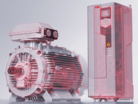Mission to Net Zero: why energy efficiency is key

Ongoing energy shortages have led to soaring costs across EMEA this winter, which are threatening the survival of businesses across multiple sectors. Many were looking to the recent COP27 summit for a way forward, but it left a lot of questions unanswered.
There are rising concerns that governments will prioritise cheaper energy – and therefore growth – over their “Net Zero by 2050” targets. However, maintaining our efforts to limit global average temperature rises to 1.5 degrees Celsius is essential. To achieve this, we will need greater efforts and innovative thinking.
This process will involve multiple steps, including electrifying transport and industry, promoting the transition to renewables, and encouraging circular economic thinking. But business leaders also need to ensure that the actions they take are economically viable. There is one underappreciated area I believe can satisfy the needs of both businesses and the planet: energy efficiency.
Adopting the latest energy efficient technology enables us to get more out of our existing energy resources. The latest International Energy Agency (IEA) report suggests that energy efficiency could reduce greenhouse gas emissions by as much as 40% over the next 20 years. It’s no surprise, then, to learn that the IEA deems energy efficiency the “first fuel” in our drive towards Net Zero. Here is how industry can lead the charge by investing in and adopting energy-efficient technology.
More efficient motors and beyond
Electric motors are the bedrock of modern industry. They run processes across multiple sectors, from steel mills to food and beverage production. Motors are also vital in the heating, ventilation and air conditioning (HVAC) systems that keep us warm and cool us down, as well as in the pumps that supply us with fresh water.
Electric motors account for around 45% of total electricity consumption worldwide. However, of the 300 million motors in service today, many are older, less efficient models that consume more power than they need to. As a result, considerable amounts of energy end up wasted. This makes electric motors ideal targets for new, energy-efficient technologies and processes that will reduce emissions and guarantee returns.
The latest regulations require higher minimum energy efficiency ratings. As of 2021 regulations, most industrial motors within the EU must have an efficiency rating of at least IE3 – and this will rise to IE4 in June 2023. This is a step in the right direction, but many operators choose to go further, opting for higher rated (IE5) motors. An IE5 motor cuts electrical losses by up to 40% compared to IE3 motors, futureproofing the business.
However, energy-efficient motors are just the start. Variable speed drives (VSDs) adjust the speed of a motor to match the actual demand in applications where many motors run at full speed unnecessarily. Using a motor without a drive is best described by a colleague of mine as “like having a single switch that turns all the lights in your house on and off at the same time, rather than having a switch in every room.” Installing VSDs results in typical savings of around 25% or more in most common motor applications. With current energy prices, that means that operators can see return on investment in a matter of months.
ABB’s recent global energy efficiency survey has shown that businesses are taking this initiative seriously. Of the 2,000 respondents, 97% plan to invest or are already investing in energy efficient solutions. Furthermore, 89% said that they will increase their spending in this area over the next five years. Simply put, there are clear signs of movement in the right direction.
Circularity in practice
Hand in hand with energy efficiency, there’s also a need to create a circular economy. That is why ABB is partnering with Boliden, the Swedish mining and smelting company that produces recycled copper for use in our high efficiency electric motors.
Recycled copper has a 65% lower carbon footprint than copper from virgin ore. A regular 75-kilowatt (kW) motor weighing in at 650kg might include up to 80kg of copper. However, using recycled copper will result in a reduction of CO₂ emissions of around 200 kg per motor.
Additionally, ABB will audit Boliden’s own motors to identify the least efficient motors. They will be replaced with high efficiency motors while the old motors will go for recycling – a perfect example of the circular economy in action.
Everybody wins
Adopting more energy-efficient technology will help industry cut emissions and operating costs. This means that both business goals and the Net Zero pledge can be satisfied. This approach, combined with greater industrial collaboration and circular thinking, will be essential to fully realise the transition to a more sustainable world.
Learn more with ABB’s industrial energy efficiency playbook: https://energyefficiencyplaybook.events.abb.com/



